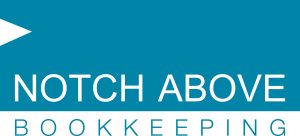Buy local first this festive season
Broadening your supply chain and buying local dramatically lowers your risk when things get tough.
If you’re a small business who is dependent on a single supplier for your materials, you will have probably noticed just how hard it is to source what you need during a pandemic.
During our first nationwide lockdown, importing materials from overseas was a squeeze, with restrictions placed on goods moving across borders. And when panic buyers caused some product lines to sell out, cascading surges in demand for inputs meant that certain materials were simply impossible to get your hands on. In turn, production couldn’t ramp up quickly enough to meet the volumes required.
Diversifying to lower your risk
To avoid risk, many businesses are now reducing their dependency on single suppliers, especially those located overseas. Whilst international suppliers may have delivered cost savings for your business in the past, the possibility of disruptions in the future might now cause you to think twice.
In response, a trend towards near-shoring is emerging as a replacement for off-shoring. By looking for Australian manufacturers where possible, you not only reduce the chances of interrupted supply, but also cut your transportation costs. Plus, lining up multiple homegrown suppliers helps to keep the local economy thriving.
Using the buy local trend for good
Customers are also embracing the buy-local trend, supporting their neighbourhood businesses and buying Australian-made goods.
Increasingly, they are planning to holiday locally as well. Australian travel routes are now set to reignite well before global ones, meaning people will be venturing interstate and exploring our own backyard first – and needing the services of local businesses along the journey.
Ultimately, the local-first trend is positive for both small businesses and their customers. Why? Because reducing the risk of supply shortages while supporting your neighbourhood favourites is a win-win. As customers continue to buy local, your business can too, all the while reaping the rewards of a more stable supply of materials.
Consider your customer
What locally sourced products are your customers demanding most?
What does ‘local’ mean for your customer – does it mean from their neighbourhood, from their home state, or from Australia?
How can you support your customers’ desire to travel domestically in the short to medium term?
Consider your business
Can you diversify the range of suppliers you rely on and support more suppliers who are local?
Can you rapidly source extra components if demand surges?
Have you got access to back-up stockpiles if shortages emerge?
Are offshore providers suitable for your back-of- house operations or should they be run locally?
Tips
- Review your list of suppliers with an eye to reducing your risk. Check that they can ensure continuity of supply and quick boosts to production if needed.
- Proudly highlight local sourcing in your product descriptions.
- Tell your customers the stories of how their food came to be on the plate, or how you are supporting other small businesses in the neighbourhood.
- Pivot your attention temporarily from incoming international tourists to domestic holiday-makers.
- Embrace the challenge of selling in your own community – build your local profile and connect with neighbours.
Notch Above Bookkeeping is a team of Platinum Certified Xero bookkeepers and BAS Agents. Based in Brisbane we help small business clients right across Australia prepare their BAS returns and streamline their bookkeeping processes, payroll and accounting records. Call us to find out how on 1300 015 130 today.
Source: Xero



